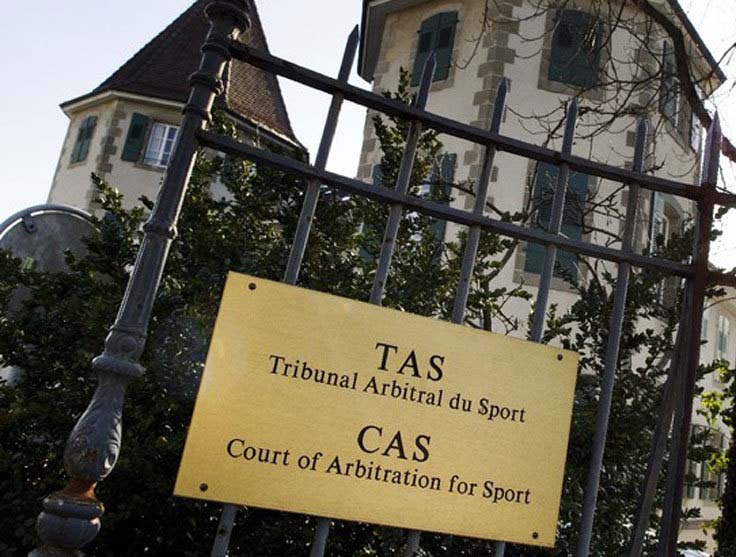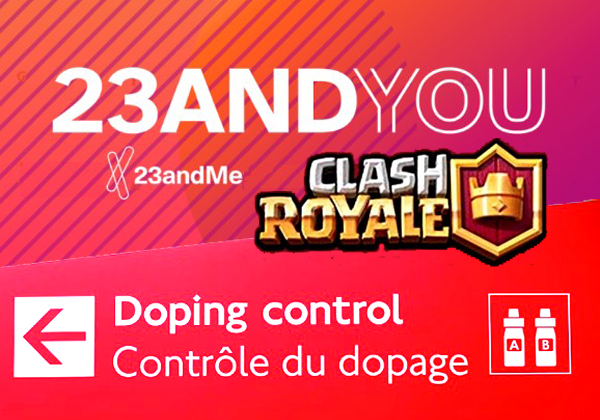In going a step further than the World Anti-Doping Agency (WADA) itself went in its official statement, WADA President Witold Banka called for world-wide legislation that also has the effect of banning gender-affirming medical treatment for transgender minors. Banka did so while commenting on the decision by the Court of Arbitration for Sport (CAS) yesterday in the case of Russian figure skater Kamila Valieva. More on the CAS decision later in this article.
“Anyone who dopes children should be in prison,” Banka wrote in this post on his X account, mirroring the “make the doping of minors a criminal offence” language in WADA’s official statement on the CAS decision. But then Banka went a step further.

“We encourage governments to consider criminalizing the supply of performance-enhancing drugs to minors,” Banka wrote.
Such laws would create problems in jurisdiction like California where, for example, the performance enhancing substance testosterone is routinely given to biological female minors who identify as male. Testosterone is provided when “medically necessary” as part of “gender-affirming care” and insurance companies are required to approve such treatment.
In contacting WADA media relations, we pointed out that Banka’s proposal, if implemented, would “turn insurance administrators and doctors into criminals,” and that it would affect not only transgender athlete minors, but the medical treatment of all transgender minors.
“Why is WADA seeking to criminalize gender-affirming care for transgender minors?” we asked James Fitzgerald, WADA’s Head of Media Relations.
“At this stage, I have nothing to add to yesterday’s statement,” Fitzgerald responded. He was referencing WADA’s statement on the CAS Valieva decision, which it issued yesterday.
Ironically, Banka did have something to add to the official WADA statement Fitzgerald referenced — Banka made his comments while posting that very WADA statement. And yet now Banka is stonewalling: two inquiries to Banka directly via email about his X post went unanswered.

Lacrimonia.Com has previously reported on another misstep by Banka, and more generally on his and WADA’s different treatment of doping code violations depending on which country commits them.
As for the CAS decision itself, currently there is only this media release from CAS itself talking about the decision. The decision itself “will not be published immediately on the CAS website” as it goes through a required “confidentiality review, meaning that the parties might request that the Arbitral Award [the decision], or certain information contained in it, remain confidential.”
However, the media release makes it clear that the Court relied on Russian doping rules in deciding on a four year suspension. It did not rely on WADA’s so-called anti-doping “Code.”
What rules CAS relied on matters because WADA has previously told us that RUSADA’s decision, which now has been overturned by the CAS, “was wrong under the terms of the World Anti-Doping Code” [underlining added] . But now, CAS has apparently disregarded the WADA Code and relied solely on the Russian anti-doping code. It its statement, CAS said:
Ms Valieva is found to have committed an Anti-Doping Rule Violation (ADRV) under Clause 4.1 of the All-Russian Anti-Doping Rules of 24 June 2021 (the Russian ADR).
No mention was made of the WADA Code in reaching its decision.
Does WADA agree with the Panel’s position to base its decision on national anti-doping rules rather than the WADA code? We don’t know because WADA didn’t answer that exact question when we posed it to them, saying instead it had “nothing further to add” to its media release yesterday.
In essence, CAS said that unlike in the WASA Code, the Russian Code treats athletes under the age of 16 the same as older athletes. Under the WADA Code, athletes under the age of 16 are called “Protected Persons” and may receive more lenient treatment. Further applying the Russian Code, the CAS found that a 4-year suspension was warranted starting on the date of the test, December 21, 2021.
Fair-minded doping enforcement observers will no doubt be looking for equal application of this standard of putting national doping rules over international doping rules in any further CAS decisions. A full picture of the legal reasoning behind the decision will only emerge only the CAS decision becomes available.
Commenting on Banka’s X-post, one person named Andrej Shabanov posted this, comparing the punishment for Jamaican swimmer Mackenzie Headley’s two (2) positive doping tests in 2022 with Valieva’s:

The outcome of each case? Headley was received only a reprimand and no suspension, whereas Valieva received a 4-year suspension.
Banka didn’t respond to Shabanov’s question, just as he didn’t respond to our question.
Although Banka and WADA are choosing to not answer, the tough questions are being asked. Doping matters are being discussed online as the sports world appears to be ripping in two over the war in Ukraine. Banka has repeatedly condemned the Russian invasion of Ukraine, even though WADA’s mission is limited
As always – Lacrimonia.Com reports and our readers decide. Follow us on Facebook to receive notifications when we publish articles.


